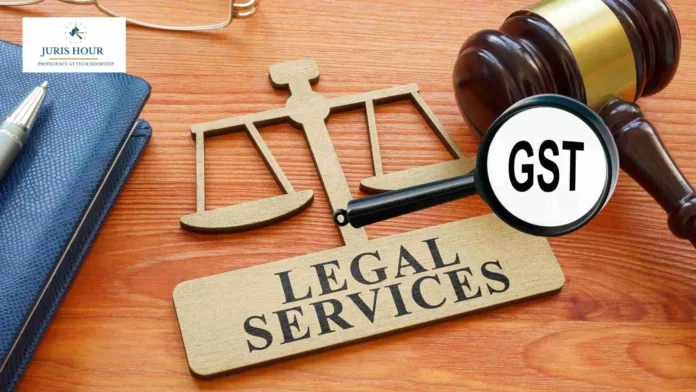Legal services in India, under the GST regime, are subject to specific provisions that determine whether tax is to be levied, who is responsible for payment, and under what circumstances exemptions may apply. Legal services have been defined under GST law to include representational services before courts, tribunals, or authorities, legal consultation and advice, assistance in documentation, and arbitration or conciliation services.
GST Rate on Legal Services
Legal services are taxed at the standard rate of 18% under GST. This includes services such as legal drafting, documentation, consultancy, litigation support, and arbitration. The Service Accounting Codes (SACs) applicable to various types of legal services include SAC 998211 (representation in criminal law), SAC 998212 (legal consultancy), and SAC 998213 (arbitration and related services).
Registration Requirements
GST registration is mandatory for legal service providers if their aggregate turnover exceeds Rs 20 lakh in a financial year (Rs 10 lakh for special category states). Even if the turnover is below this threshold, legal practitioners may be required to register if they are providing services across state lines. Voluntary registration is also permitted and can be beneficial for claiming input tax credit on professional expenses.
Reverse Charge Mechanism (RCM)
In most cases, GST on legal services is collected under the Reverse Charge Mechanism (RCM). This means that instead of the advocate or law firm charging GST to the client, the responsibility of paying GST lies with the recipient of the service. This applies when legal services are provided by an individual advocate or a firm of advocates to a business entity registered under GST. The business client pays the GST directly to the government under RCM.
However, when legal services are provided to individuals or unregistered entities, no GST is charged, provided the service provider’s turnover does not exceed the exemption threshold. Furthermore, when a senior advocate provides legal services to another advocate or law firm, the forward charge mechanism applies, meaning the senior advocate must charge and pay GST themselves.
Exemptions and Special Cases
Legal services enjoy several exemptions under GST law. Services provided by advocates or firms of advocates to other advocates, individuals, or entities not engaged in business are generally exempt if the turnover is within the threshold. Additionally, services rendered to courts, tribunals, or government authorities are also exempt. The GST law also allows exemptions based on the nature and scale of services—for example, services billed below Rs 1,000 per day to individuals may be exempt in certain cases.
A recent judgment by the Orissa High Court further clarified that individual lawyers may not be liable to register under GST or collect tax when providing services to non-business entities, thereby reaffirming the protective scope of these exemptions.
GST on Imported Legal Services
When legal services are imported from outside India—such as a foreign law firm providing a legal opinion to an Indian company—GST is applicable under the Integrated Goods and Services Tax (IGST) regime at 18%. In such cases, the Indian recipient is required to pay GST under RCM, treating the service as an import.
Compliance for Legal Professionals
Legal professionals need to be diligent about GST compliance. They must assess whether they are liable to register based on turnover and the nature of their clientele. Registered advocates must issue GST-compliant invoices, including GSTIN details and applicable SAC codes. Businesses receiving legal services under RCM must ensure they correctly discharge the GST liability and report it in their GSTR-3B returns. They may also claim input tax credit on such services, provided they are used in the course of business.
Filing of returns such as GSTR-1 and GSTR-3B is mandatory for registered advocates under the forward charge, while businesses paying GST under RCM must ensure accurate disclosures in their returns. Misreporting or non-compliance may attract penalties or loss of input credit.
Common Practical Scenarios
When a law firm provides services to a corporate client that is registered under GST, the client pays 18% GST under RCM. If an individual advocate provides services to a private person or an unregistered entity, and their turnover is below Rs 20 lakh, there is no GST liability. In the case of senior advocates providing services to another law firm or advocate, GST is collected and paid under the forward charge mechanism. Similarly, when legal services are imported, Indian companies must pay IGST under RCM.
Conclusion
GST is applicable to legal services in India at a rate of 18%. However, the mechanism of payment—whether through forward charge or reverse charge—depends on who is providing the service and who is receiving it. While the general rule is that business recipients pay GST under RCM, many services remain exempt, especially when provided to individuals, courts, or government bodies. Legal professionals must carefully examine their turnover, clientele, and nature of services to determine their GST obligations. Staying updated on legal interpretations and statutory changes is essential for compliance and for leveraging available exemptions and input tax credit.

